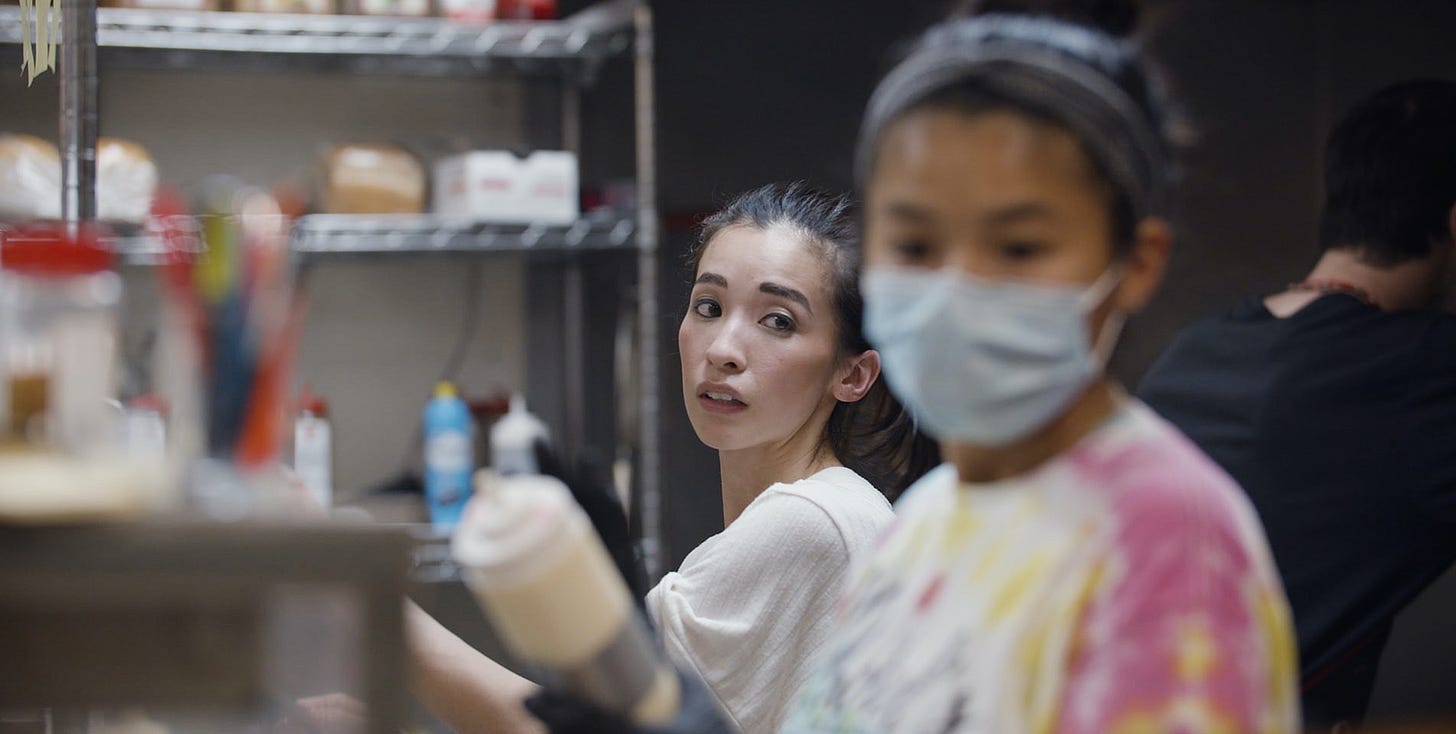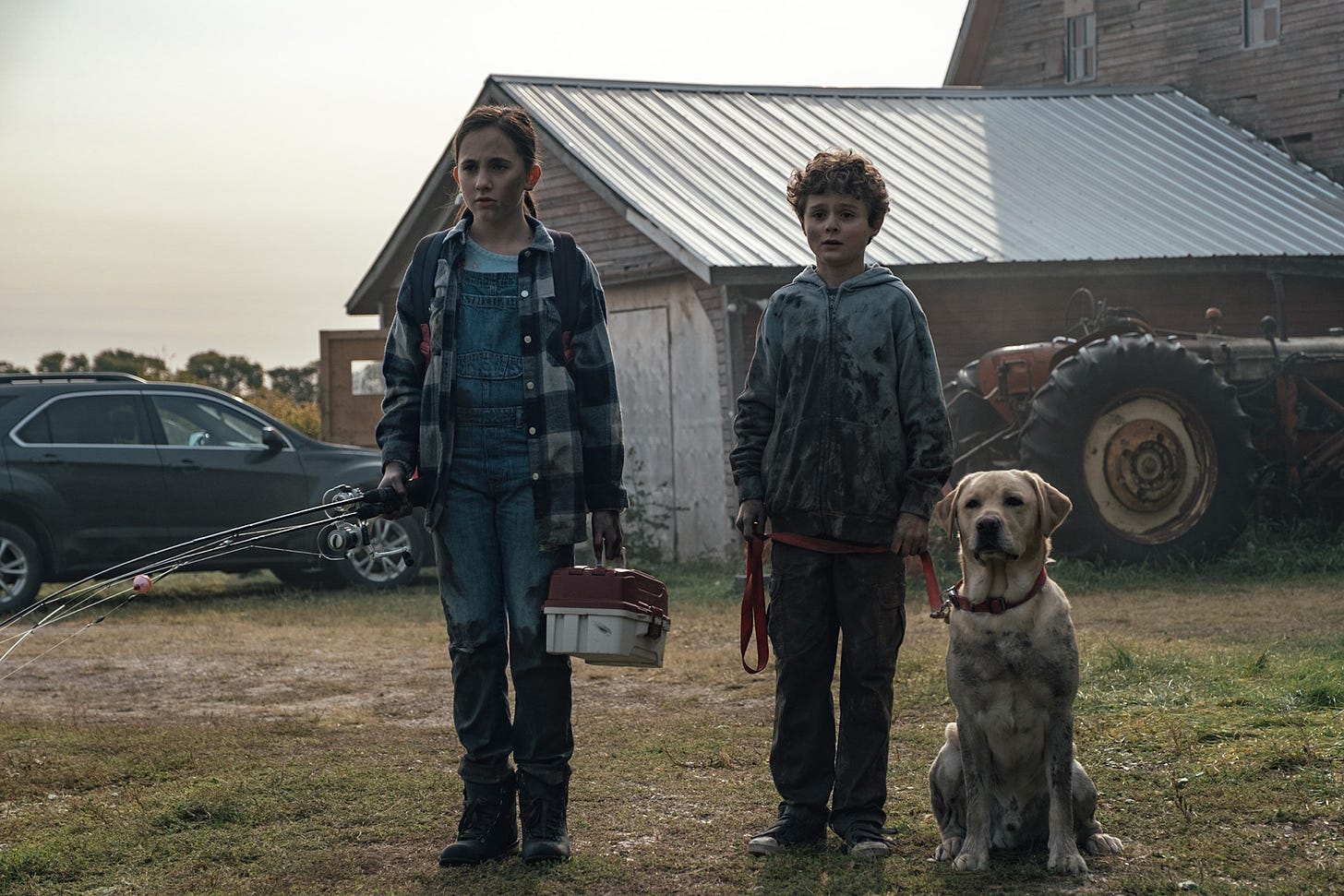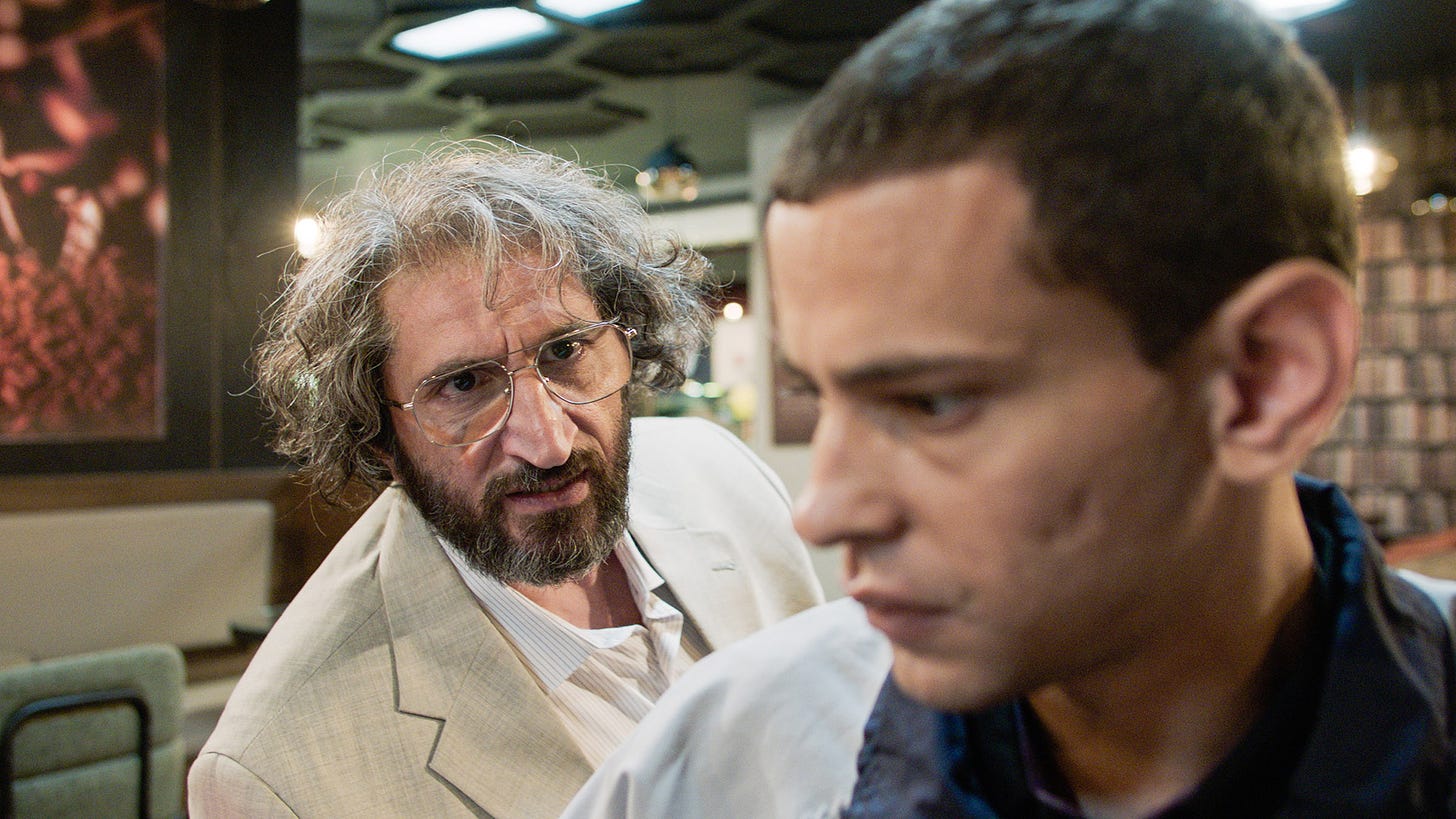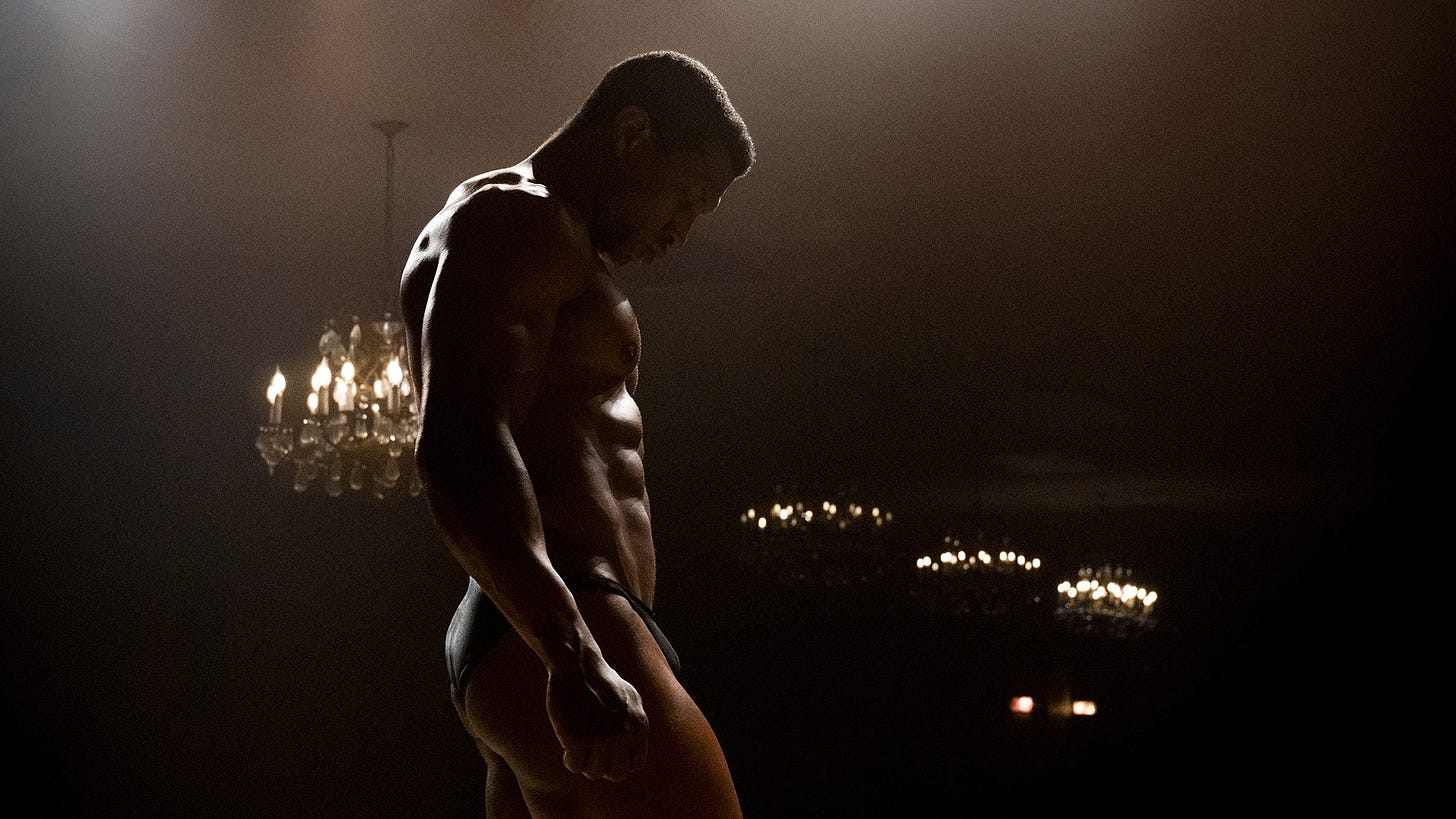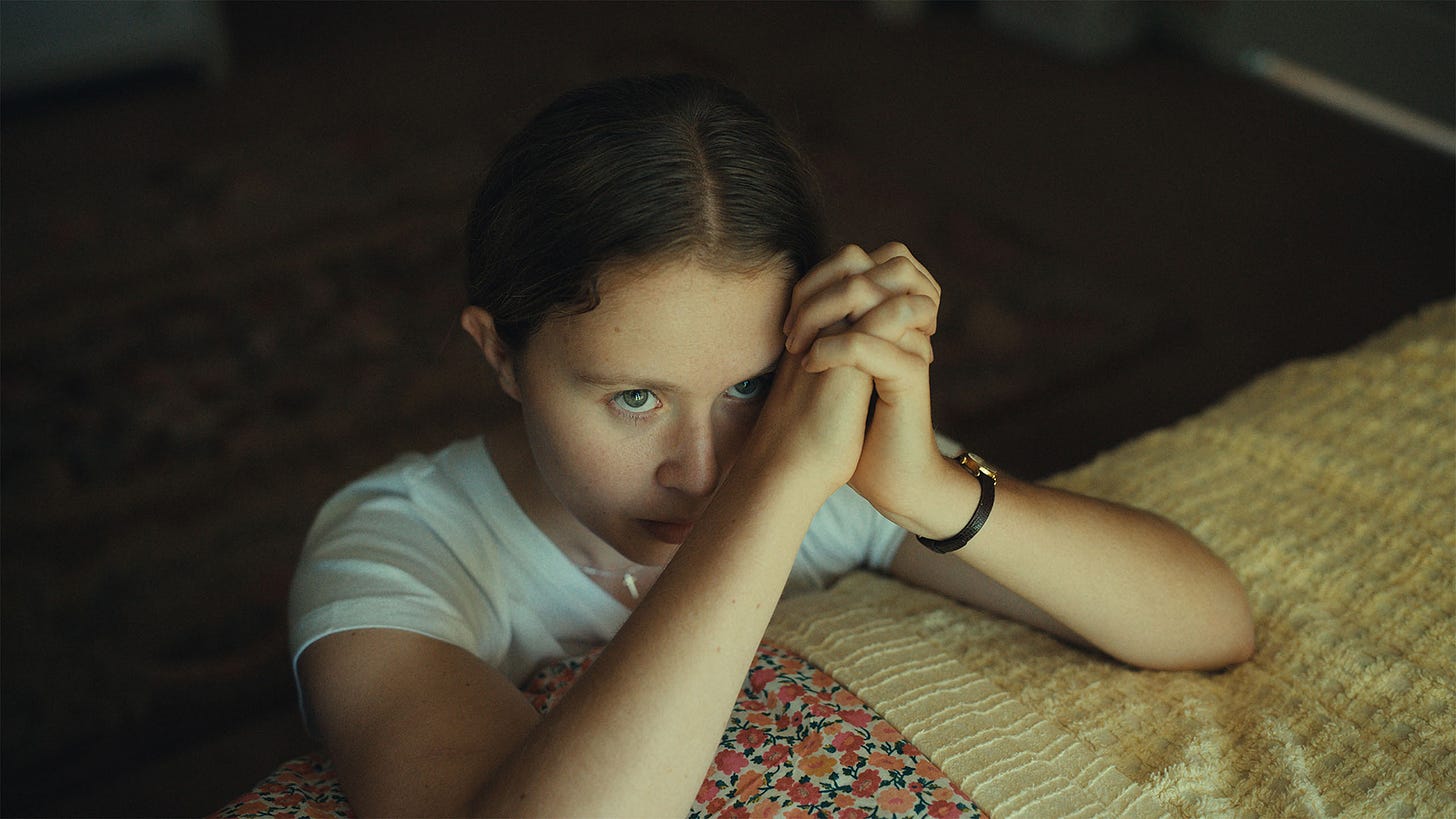Buffalo has always had an embarrassment of riches when it came to movie theaters, but COVID and streaming have really taken a bite out lately. First it was Dipson Eastern Hills shuttering and now it is the impending demise of both the Elmwood and Transit Regals. The latter is the biggest surprise for me because Transit was the area’s sole IMAX screen. I guess the Galleria Mall location is making enough at the box office to stay alive instead. Who knows, though? Dipson has already saved the Transit Drive-in and Regal Niagara Falls (re-opening next week as the Capitol Theatre) while also renovating Flix?! Maybe they’ll somehow take that IMAX too.
This past week also ushered in the return of MoviePass ($10 for 34 credits a month with local Buffalo showings “costing” 15 credits each, matinees for 10) to soften the blow for all those Regal Unlimited members uninterested in driving to their locations that are left in Cheektowaga or Orchard Park. And, of course, the Oscar nominations were revealed. Kudos to ALL QUIET ON THE WESTERN FRONT picking up a huge haul for a foreign film. Kudos to Andrea Riseborough’s celebrity-led grassroots social media campaign earning her a deserved nomination. Kudos to Brian Tyree Henry getting in there (one of my faves of the year). Shame on the Academy for giving Michelle Williams the spot reserved for Danielle Deadwyler. And WOW! No DECISION TO LEAVE anywhere?! No one saw that coming.
Time to watch THE SEA BEAST, A HOUSE MADE OF SPLINTERS, CLOSE, and ARGENTINA 1985 to officially close out the year (as well as the shorts).
What I Watched:
BAD AXE
(now on VOD/Digital HD)
In the midst of unprecedented times at the beginning of the COVID pandemic, David Siev decided to leave New York and move back home to Bad Axe, MI to quarantine with his family and help with/document their struggle to keep their restaurant afloat amidst lockdown. While that in and of itself would be enough to deliver a captivating example of against-all-odds storytelling, there’s more to this particular family’s American Dream since they aren’t your generic white Midwesterners plugging along. David’s father Chun, along with his six siblings and their mother, was a survivor of the Cambodian Killing Fields who settled in America, started his own family, and built a business with his wife Rachel to cement themselves in the community for the long haul.
BAD AXE therefore documents more than just the pandemic. It goes back much further to show audiences how the Sievs got where they are today in order to better contextualize how far the country in which they live has failed them and so many others since. That’s not to say David has created an agenda film, though. He may actually go too far in ensuring that viewers know he knows it’s not “all white people” who are racist. He doesn’t need to speak in generalities to showcase just how vocal and destructive those who are prove anyway. They do that all by themselves via threatening posturing, letters, and emboldened hate upon discovering the Siev family “dared” to support a BLM march in 2020.
David’s “love letter” to his hometown—a description that the family is quick to question considering said hometown won’t agree—quickly turns into a proud showcase of perseverance, strength, and empathy on behalf of his parents, sisters (Jaclyn, Raquel, and Michelle), and their significant others. The lockdown forces them to have many heart-to-hearts about the present and the future as Chun and Rachel organically look to pass the reins to the next generation. That shift in responsibility, however, also demands a shift in ethos. Because while the elder Sievs understand the growing political tensions surrounding them in Bad Axe, they were raised to stay silent. Be “good” immigrants. Work hard. Don’t rock the boat.
The film therefore also becomes an instructional look at assimilation, racism, and the increasing need to fight back as a matter of pride and identity despite the risk. It’s something I can relate to being the child of staunchly conservative parents whose families assimilated so hard that enjoying the benefits of living most of their lives as “white passing” pre-9/11 has them believing they are white. Some of it’s fear-based (blind patriotism aside, there was always more to the “joke” of my father getting an American flag tattoo to deflect from his Arab complexion), but it’s also about lived experiences and indoctrination. As Jaclyn’s husband Mike states, white people dismiss oppression because they’ve never had the displeasure of truly living it from the other side (despite what Tucker Carlson tells them every night).
It’s an education by fire once Jaclyn spearheads the family’s involvement (against Chun’s wishes) with an employee’s BLM protest and David puts an investment trailer for this film online with footage from that event. The backlash is immediate and they all must attack it head-on as minorities in Trump country, some being non-residents (Jaclyn and David don’t live in Bad Axe despite moving back during the pandemic), and all financially needing the restaurant to survive. Stress and frustration constantly boil over as altercations with customers, neo-Nazis, and each other trigger intensely emotional responses. The whole proves an unforgettable indictment on the US political machine fanning flames of hate and a personal, inspirational story of fighting back—with words, actions, and a refusal to let anyone pretend the Sievs don’t deserve to call this flawed town home.
- 8/10
BLOOD
(now in limited release and hits VOD on 1/31)
Brad Anderson’s BLOOD (written by Will Honley) is a high-concept vampire film that refuses to use the word vampire (as is the custom for these types of endeavors regardless of supernatural monster). The “diseased” is Owen (Finlay Wojtak-Hissong), the youngest of Jess’ (Michelle Monaghan) two children (Skylar Morgan Jones plays his sister Tyler). Embroiled in a custody dispute with their father (Skeet Ulrich), Jess has moved her trio to a large but unkempt family home that’s been vacant since her aunt died years ago. It’s there that the kids decide to fish in the lake they’ve heard so much about, only to find it devoid of water. Their dog grows restless in the quiet, sensing something amiss by the tree at its center.
Long story short: the dog runs away and returns home “changed,” attacking Owen by biting him in the leg and neck. Jess rushes him to the hospital where she works as a nurse, but his health is only one aspect of the horror of this incident since a recent spell of self-medication has left her custody of the children in flux. So, when she finds him sucking down on a bag of blood only to discover it’s the one thing that seems able to keep his vitals stable, she makes a choice. Jess will steal plasma and “treat” him at home. As long as he remains healthy for weekends with Dad, nobody should bother her while she researches a solution. Except, of course, that his appetite inevitably grows towards a point of no return (Wojtak-Hissong does creepy very well).
It’s an effective spin on usual genre tropes with Monaghan constantly pushing herself beyond the limits of morality to keep her boy alive. Her position as a nurse leads to some interesting extremes as she improvises her means of blood retrieval once taking her own often leaves her looking like she flushed fifteen months of sobriety down the tubes. Those familiar with vampire lore might get frustrated knowing the probable “fix” once traditional medicine proves useless, but know that the characters get there eventually. The delay actually feels intentional insofar as ensuring the film plays as bleak as possible (a literal and metaphorical punishment for Jess despite her genuine attempt at redemption), but I don’t think we’re meant to look that deep. Stick with surface and you should enjoy the ride.
- 7/10
CAIRO CONSPIRACY [Walad Min Al Janna]
(now in limited release; Sweden’s International Oscar submission)
There should be no question about who takes over the title of Grand Imam at Cairo’s Al-Azhar University: the so-called Blind Sheikh (Makram Khoury). One of the country’s most venerable religious leaders, he’s known for following the truth without political affiliation. Whereas that was always held as an admirable trait, if not requisite, for a position that holds comparable power to the president, however, our present times have turned it into a liability instead. Think the Supreme Court in America—a once unimpeachable branch of government that required bipartisan support for new justices. Now the controlling party in the Senate can push through whomever they want regardless of moderation. It’s the same in Egypt. The president cannot risk the Grand Imam contradicting his whims, so the party acts accordingly.
Tarik Saleh’s CAIRO CONSPIRACY shows us the lengths in which the State will go to install its preferred candidate. Because the Blind Sheikh isn’t the worst option in play. There’s also Sheikh Al Durani (Ramzi Choukair), a man they consider a traitor for leading his students to the “dark side” of Muslim Brotherhood and Sharia Law. General Al Sakran (Mohammed Bakri) therefore gives State Security an order to see that Sheikh Al Beblawi (Jawad Altawil) proves victorious instead. He won’t be a puppet per se. He’s simply known for aligning his politics with the current regime anyway. So, it’s up to Major General Sohby (Moe Ayoub) and his Colonel (Fares Fares’ Ibrahim) to get it done. The question is just how far they should/will go to do it.
Enter Adam (Tawfeek Barhom), the son of a fisherman in a poor village that sees him as their conduit to the future with an education like the one his scholarship to Al-Azhar will afford. To them his going is “God’s plan”. To Ibrahim his enrollment is an opportunity for manipulation on the inside. Being naive and impressionable, the young man is recruited into a clandestine operation without even knowing it until the “friend” who suddenly took a shine to him is murdered before his eyes. What’s Adam to do? Who is he to trust? Ibrahim does everything in his power to make certain that he is the only one in a position to help. That he can protect Adam from suffering the same fate.
We know, though, that there’s as much chance Zizo (Mehdi Dehbi) was killed on Ibrahim’s orders as he was by Al Durani’s student zealot Soliman (Sherwan Haji). We fear for Adam’s wellbeing as he’s told by Ibrahim to befriend the latter and spy on his clique, but we never question his intelligence. Because there’s a reason he earned his place at this school and it’s not to be another disposable spy for the State. Once he’s made aware of his position as a pawn in this game for political power within the religious sphere, he refuses to allow himself to be blindsided again. Maybe it means he’ll risk blowing his cover. Maybe he’ll even betray a friend. Adam is desperate to stay alive knowing one wrong step means never going home again.
Saleh—an artist with the necessary perspective to see the flaws within his overlapping worlds (this Egyptian-set Arabic-language film is Sweden’s Oscar hopeful, after all)—weaves an intricate yet calculated plot that earns its Best Screenplay distinction at Cannes. He’s written Adam and Ibrahim in a way that forces them to acknowledge each other’s humanity as a means of gaining trust. Because while we know Soliman and Sohby are ruthless, a line still exists for Ibrahim. He might be forced to cross it for his own self-preservation, but then so might Adam. Because while the latter came to Al-Azhar for enlightenment, he mostly finds lies. Politics have infiltrated every corner of society straight down to the mosque with every decision having miles of string connecting puppet masters to puppets.
Which will Adam be? Which will Ibrahim be? These questions lend the intrigue necessary to follow along as strategies evolve and pieces leave the board, but the answer we really want to know is whether any of it matters. Because once corruption takes control, there’s no easy way to fight it. Even righteous attempts to expose that corruption have a way of unwittingly bolstering it. And as Saleh explains in his director statement, that truth doesn’t inherently pick a side. Neither Al Durani actively sabotaging the proceedings for personal gain or Al Beblawi intentionally looking the other way when someone sabotages it for him is above the other. And neither is above the State. That’s what Adam ultimately learns: the system is rigged. No “authority” is beyond reproach.
- 8/10

LIFE UPSIDE DOWN
(now in limited release and on VOD)
While most people baked bread during COVID lockdown, Cecilia Miniucchi made a movie. LIFE UPSIDE DOWN was shot remotely using iPads and iPhones at three different locations with stars Bob Odenkirk, Radha Mitchell, and Danny Huston presumedly setting up each scene to their director’s specifications. Most conversations unfold on those same devices as Jonathan (Odenkirk) and Clarissa (Mitchell) yearn to continue the affair they began months previously while Paul (Huston) provides an outlet as his artist’s potential buyer and her professor’s confidant—all while dealing with his own romantic issues opposite Rosie Fellner’s Rita. They each want what they can’t have until mandated quarantine forces them to remember they already had it at home.
It sounds cliché because it is. Jonathan wants Clarissa because he’s grown bored of his wife only to discover he never stopped loving her. Clarissa wants Jonathan out of authentic love born under false pretenses, letting him constantly disappoint her when there’s potential to move on right outside her window (Cyrus Pahlavi’s guest-house tenant Darius). And Paul wants to enjoy his time with Rita despite them being complete opposites—something that involuntarily feeds his pretentiousness to perpetually infantilize and dismiss her with every patronizing placation that leaves his mouth. Their respective relationships are going exactly where you guess from beginning. Yes, this is largely due to the production’s constraints, but that’s not necessarily an excuse if you went ahead with filming anyway.
The result plays less like a movie than a filmed exercise keeping the creative juices of those involved flowing at a time when their livelihood was at a standstill. Miniucchi tries to manufacture intrigue with a prologue shot after lockdown was lifted months later, but its real-time one-shot nature only adds to the awkwardness of the whole’s lo-fi rehearsal aesthetic. It helps get us situated as far as who everyone is to everyone else (and explain why Jonathan’s wife’s face is never seen—because Odenkirk’s actual wife probably acted as a stand-in with Jeanie Lim dubbing lines in post), but the drama introduced is generic at best. So, watching these characters go through obvious motions in boredom ends up being boring itself. There’s a greater chance of experiencing PTSD from reliving that sense of isolation than finding any real emotional value.
- 3/10

THE PICTURE TAKER
(airs 1/30 on PBS’s INDEPENDENT LENS)
The photographs speak for themselves. Ernest Withers captured the Civil Rights movement in all its pain and glory from behind his camera, befriending and assisting everyone who came through Memphis as an ally working to ensure the country and world knew what was happening. And yet there’s a question as to whether the legacy of his images is enough. Why? Because it was later discovered that he was also an FBI informant. Some obviously took that news as a betrayal. Others contextually reconciled it with a segregationist era that made it so saying “No” to white men in power wasn’t an option. Even more look at the transcripts and wonder if Ernest just told them what they wanted to hear regardless of truth before pocketing the cash guilt free.
Phil Bertelsen’s documentary THE PICTURE TAKER puts Withers’ work alongside numerous new interviews to simultaneously tell the story of his career and capture the reactions towards this bombshell revelation from those who knew him best. The former goal succeeds as Ernest truly lived a miraculous life that moved through worlds with his camera as a shield. The latter is unfortunately mostly hearsay either from descendants of those who were there or assumptions made from documents you can’t trust considering most were second-hand, agenda-driven accounts by his FBI handler rather than himself. So, while the reality of Withers’ position as an informant adds invaluable intrigue, don’t expect any concrete answers as far as motives or impact are concerned.
We receive educated guesses based on the documentation at-hand and the paranoia born from hindsight of those now questioning how Ernest was always right there by their side for every march, protest, and closed-door meeting. In the end it makes sense if he was merely taking a paycheck and using FBI resources to bankroll his library of images that did more to help Black America than hurt it. Because nobody thinks he purposefully tried to harm those his information helped surveil, arrest, or assassinate regardless of whether it ultimately played a role. Because one must also remember the racial power dynamic at play. One must consider Withers’ past as a police officer who understood the game. And, of course, we can’t forget those his photography saved.
Bertelsen constructs his film as a resource for this context without passing any judgment. He lets the family speak their peace and explain the ways in which they continue using his art and legacy for good in their community. He lets historians paint the picture behind the pictures for a better understanding of the time. And Withers’ presumed victims get their opportunity to rethink their memory of their friend and conclude whether nothing or everything changes in the wake of this new knowledge. We have that luxury too. Absorb what’s said, weigh the scales between good and evil, and bask in the artistry that stands up to both. Hero or villain, no one can deny his talent.
- 6/10
WAKING KARMA
(now on VOD)
Sunny (Kimberly Alexander) was forced to kill a man seventeen years ago in a cult ritual led by her prophet Paul (Michael Madsen). What else transpired that day is unknown as directors Liz Fania Werner (who also wrote the screenplay) and Carlos Montaner fast-forward to the present to find Karma (Hannah Christine Shetler) anticipating the annual birthday ritual of cake, swimming, and sweets her mother is about to commence. We can guess, though, once the teen’s wish is revealed to be a long-held desire to change her last name. She doesn’t want to walk around her adult life in Paul’s shadow like she had her adolescence, but Sunny explains the reason she gave her his name was to never forget the evil he wrought.
WAKING KARMA therefore begins with a concise dose of exposition that’s naturally born from the celebratory conversations held by a too-close mother and daughter duo. The reason it’s all coming out now is because Karma was accepted to Harvard and attending means separating from her mother for the first time ever. She was nervous Sunny wouldn’t take the news well and wonders if she perhaps underestimated her when the opposite proves true, but a wrench is thrown before any concrete plans can be hatched. An unstamped letter is pushed beneath their door with a message from Paul. After all this time, he’s decided to come out of hiding and retrieve his child.
Even though it doesn’t take much to hypothesize what’s really happening—low budget thrillers with few characters often can’t afford subterfuge—I was admittedly captivated with the drama as Sunny and Karma flee to hide on the property of two other reformed disciples holed up in the woods (Bradley Fisher’s Butch and Christine Sloane’s Priscilla). It’s here that we learn more of the details Karma’s mother never divulged and anticipate Paul’s return with an over-the-top panache that only Madsen can supply. Unfortunately, despite the latter having fun with the character’s built-in villainy, the action becomes hamstrung by a repetitive loop of tests and delusions. It becomes a bit of slog before an effective reveal breaks the pattern and, sadly, a slog again before the climax.
An underlying theme of getting out from beneath your parents’ expectations to live your own life is present, but it never quite coalesces with the serial killer cult aspects on a figurative level. Everything that happens on-screen is so literal that it becomes difficult to not feel as though we’re simply being led down a series of narrative checkpoints. The one exception comes from those delusions because Karma sees things she can’t know. Add Paul’s explanation for why and I couldn’t help getting excited for a shift into the supernatural that never comes. Alexander and Shetler get a few really strong moments together to allow the grounded nature of the whole to resonate, but it’s not enough to mask the superficiality of the vessel.
- 5/10
SUNDANCE 2023
MAGAZINE DREAMS
U.S. DRAMATIC COMPETITION
Elijah Bynum’s MAGAZINE DREAMS is a case where there are so many great things happening that are ultimately let down by execution. The towering performance from Jonathan Majors as an amateur bodybuilder named Killian Maddox who hides his crippling fear and trauma behind giant muscles. The depiction of loneliness via obsession wherein everything this man uses to approximate an identity while shielding his insecurities can find no conduit towards understanding beyond unanswered fan mail sent to his idol (Michael O’Hearn’s Brad) because that passion terrifies anyone who is willing to listen. And the compulsion to be seen ultimately triggering an unbridled rage born from PTSD and drug use that he simply cannot control. Each piece of this puzzle holds immense power.
The puzzle itself, however, is marred by what feels like a desire to toy with the audience. Bynum throws so many examples of suffering that this character has plastered upon the inner walls of his mind like the posters of bodybuilders adorning his room that you can’t blame him for wanting to see each one through to its endgame, but at some point they all just blur together as a repetitive exercise of delayed gratification. Because he litters the film with allusions to mass killings and antisocial behavior. He sets the stage for Killian to become one more monster who forces us to forget his own victimization by being remembered as evil incarnate before pushing the payoff to the next potential venue again and again. The tension he so wonderfully builds eventually evaporates to nothing.
It’s a structural problem that unfortunately gets in the way of some unforgettable scenes—scenes so good that you can’t blame Bynum and company for wanting to keep them all despite their thematic and narrative overlap. The first hour is all about Killian pushing himself outside his comfort zone to finally try and commune with the world around him only to have it backfire in destructive ways that are wholly his fault despite still earning our genuine sympathy. The second hour is conversely a journey towards reckoning wherein his justified anger starts to take over by leading him down a dark path his psyche can’t fully comprehend due to a past that scared him into becoming the beast his younger self needed for protection under the guise of a beauty most don’t recognize like he can.
After spending all this time and effort to become nothing more than a meme, Killian decides to embrace that beast and confront his critics and abusers. It’s a heartbreaking transition mired by a threat of guns when his physique is enough to earn the reaction he seeks. A diner scene where he snaps is so much more potent because it doesn’t use props. One where he confronts a man who he believes wronged him is equally strong, but it would have been without the weapon in his hands too. I assume the reason is to differentiate the “man who freaks people out” from the “man with the gun who wants to freak people out”, but the anticipation born from the inclusion of firearms and the raw nerve implication of a mass shooting overshadows the poignant resolution that arrives instead.
- 6/10
RUN RABBIT RUN
MIDNIGHT
I’m not sure which is creepier: seven-year-old Mia (Lily LaTorre) saying she “misses a lot of people she’s never met” or her telling her mom (Sarah Snook’s Sarah) that she misses “her mother” as though she isn’t her. And that’s without mentioning the creepy rabbit mask she makes and wears whenever Sarah’s frustration boils over to verbal and unintentional physical abuse. That discomfort is an intentional means of introducing a fluidity of identity and sanity. Does Mia simply have an overactive imagination that’s blurred the line between fantasy and reality in the wake of her first birthday without her grandfather? Is Sarah’s grief for her father and a recently discovered familial history of dementia causing past trauma to manifest visions that aren’t there? Or has her long-lost sister Alice truly returned via Mia’s body? Maybe it’s a bit of everything.
Hannah Kent fills her script for RUN RABBIT RUN with many instances of duality that beg the question of whether we’re dealing with reincarnation (perhaps Alice is the bunny found on their doorstep, using Mia as a vessel whenever she must converse with Sarah) or hallucination (we can never be certain if any instance of blood is real or imagined). Director Daina Reid does a great job visualizing this lifting of the veil with figures hiding in shadows while young LaTorre steals scenes opposite an unraveling Snook with uncanny ease, delivering lines that could be coming from Mia or Alice both. When the tension is high—a first visit with Sarah’s mother Joan (Greta Scacchi), returning home to find Mia missing, or Sarah’s climactic recovery of a hidden truth—it’s impossible to look away.
Unfortunately, however, there are a lot of lulls in between. Enough that I found my mind drifting away from the action to parse together the clues and figure out said truth before the midway point. It’s a testament to the writing that those pieces fit together so well, but the fact that the script itself tries so hard to deliberately shield us from those answers can become somewhat aggravating. There’s a fine line between allowing the mystery to help facilitate Sarah’s descent into the nightmare Mia’s seventh year on earth triggers and letting it prolong the inevitable endgame beyond its limit. One lets the lead punish herself with ghosts. The other distracts the audience with parlor tricks. Thankfully, said tricks are compelling enough to keep us invested in witnessing whether the past might tragically repeat itself.
- 6/10
SHORTCOMINGS
U.S. DRAMATIC COMPETITION
There’s a great moment in Randall Park’s SHORTCOMINGS (adapted by Adrian Tomine from his own graphic novel) where a character who’s about to leave the scene feels compelled to come back and tell the main character (Justin H. Min’s Ben) exactly what he needs to hear to have any chance for personal growth despite knowing he most likely won’t hear it. She (I feel like naming her is a spoiler even though the film is about how Ben literally cannot maintain any romantic relationships and thus saying that this specific connection implodes shouldn’t ruin anything) tells him that regardless of every political/gendered/racial excuse he’s surely conjuring in his head for why love keeps failing him, the one true reason is him. He’s the common denominator. He’s the problem.
It’s a great revelation too since Ben is, in many ways, written like so many lead characters in rom-coms that are meant to be “the cool apathetic guy” we’re supposed to root for. Where those films would use his pretension, insecurities, and sarcastic deflection as relatable traits to be championed as quirks that those around him have learned to accept, however, Tomine and Park lift that veil to show the psychological and emotional immaturity they actually portray. Because Ben isn’t the smartest guy in the room calling everyone out on their bullshit. He’s the child projecting his own bullshit onto others to feign superiority in the hopes everyone doesn’t realize just how inferior he is. You can only skate by on charm for so long before everyone around you discovers they’ve evolved to the point of needing to leave you behind so as not to be left stranded with you.
That doesn’t mean we don’t still root for Ben, though. The difference is that we aren’t rooting for him to get “the girl.” Whether we’re talking about Miko (Ally Maki) who went to NYC for an internship to take a breather from him, a younger co-worker in Autumn (Tavi Gevinson), or a potential flame in Sasha (Debby Ryan), these women aren’t in the movie to be prizes. Ben, of course, thinks they are, but we know differently because they’re written to know it too. They aren’t going to just laugh at his petty grievances or ignore his rampant hypocrisy. They’re going to make certain he knows the errors of his way and watch as he tries to turn the table with a Pee-wee Herman “I know you are, but what am I?” zinger. We’re therefore rooting for him to open his eyes. And the real test is whether his infinite wealth of obliviousness still rules him when his best friend inevitably switches sides.
This dynamic between Ben and Alice (Sherry Cola) is the linchpin to everything because they are so similar at the start. Even though she’s a player casually hooking up with any woman she finds attractive and he’s in a committed monogamous relationship with Miko, their attitudes and actions are identical. It therefore says more about Miko that she and Ben have been together for so long than it does him. Because the moment Alice finds real love is the moment a lightbulb goes off for her to realize the changes she’ll need to make to preserve it—something that has yet to happen with Ben despite six years of domesticity. It’s about compromise and introspection. It’s about judging yourself by the criteria you’re quick to judge others with in order to admit you’re not perfect either.
So, while SHORTCOMINGS is objectively funny, it’s also quite heartbreaking in the ways in which it depicts just how willing the Bens of the world are to stubbornly sabotage their own happiness than admit they’re to blame. I think Park handles the tone well enough that any awkwardness is generally overshadowed by the authentically drawn from what often prove to be pointed conclusions to each “lesson.” We laugh with Ben, laugh at him, and ultimately pity him once we recognize just how lost he is to society’s game of demanding a specific brand of exceptionalism when the simplicity of being yourself and owning your flaws is the real victory. Will he get there? Who knows? This is just the first step.
- 7/10
THE STARLING GIRL
U.S. DRAMATIC COMPETITION
Between Jem Starling’s (Eliza Scanlen) parents (Jimmi Simpson’s Paul and Wrenn Schmidt’s Heidi) coaxing their daughter to talk to their pastor’s (Kyle Secor) son (Austin Abrams’ Ben) in a way that screams “arranged marriage” and another parishioner taking her aside to tell her everyone can see her bra-line through her blouse, it’s not difficult to comprehend the world writer/director Laurel Parmet has led us into with her debut feature THE STARLING GIRL. This is a Christian Fundamentalist community hinged upon male dominance and female shame—one where the cost of adolescent lust is seen by all from the physical and mental scars left by rehabilitation camps. As Paul explains, rejecting pleasure in order to avoid sin is worth the pain because it opens more space up for God.
Simpson’s performance is a crucial one because those words are as much a reminder for himself as they are a lesson for Jem. He wasn’t born in this world like her. He was “saved” after losing himself to alcohol. Everything he has now with Heidi and their five children is therefore a product of God. Paul cherishes it, but nothing will ever fully expunge his appetite to go back. And whether he’d shown this truth previously or not, Jem is at an age where it’s unavoidable to see his suffering and relate it to her own as an increased drive to express sexuality and autonomy craves that space her indoctrination by society and religion had cordoned off for faith alone. She doesn’t want to live according to her elders’ rules if those rules cause so much grief. She wants to follow her heart.
That’s where things get complicated since her heart has always led her towards the pastor’s other son—a much older and married Owen (Lewis Pullman). He’s just returned from a missionary stint in Puerto Rico to find that he may have outgrown “home’s” rigidity. So, he’s open to Jem’s advances and ultimately willing to exploit her naivete to spark an affair. But it’s not about victimization. Parmet spoke after the screening about needing to center Jem’s desires throughout because she wrote from experience as far as the complexity of this sort of relationship being more than black and white statutory rape. Her agency in its creation can’t simply be dismissed as a byproduct of the law. Owen’s abuse doesn’t erase her yearning.
It’s not an easy film as result. It exists in the gray area of allowing Jem to find her footing in a quest for independence from numerous oppressive systems. She’s gaslit by those around her in the name of God to the point where she often gaslights herself considering this life is all she’s ever known. This romance becomes her escape regardless of whether age and immaturity guarantee the road leading her away from this existential prison is paved with abuse. Credit Scanlen and Pullman for portraying the nuance inherent to this dynamic and Parmet’s deft handling of the material to ensure these three-dimensional circumstances aren’t flattened to accommodate any one agenda. Jem is confronting a minefield of compromising positions with church, sex, and so-called “respectability” demanding her subservience. It’s time to see about making them a means to her own end.
- 7/10
Cinematic F-Bomb -
Michael Fassbender delivers a memorable reaction shot in the otherwise forgettable (and forgotten?) ASSASSIN’S CREED. (Substack apparently can’t handle an embedded gif, so you’ll have to click over for a smoother experience. Or see everything at cinematicfbombs.com.)

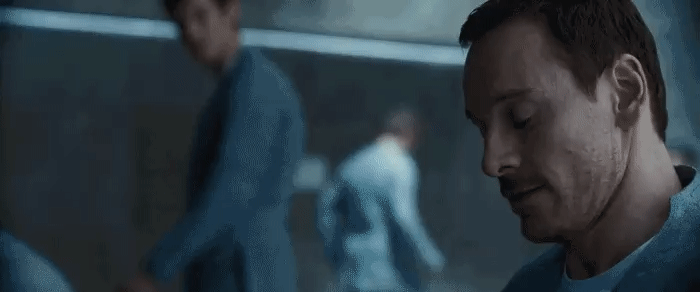
New Releases This Week:
(Review links where applicable)
Opening Buffalo-area theaters 1/27/23 -
CAROLE KING: HOME AGAIN at Dipson Amherst
FEAR at Regal Elmwood, Transit & Galleria
GANDHI GODSE - EK YUDH at Regal Elmwood
HEAVY METAL [1981] with select times at North Park Theatre
HUNT at Regal Elmwood
INFINITY POOL at Dipson Amherst; AMC Maple Ridge & Market Arcade; Regal Elmwood, Transit, Galleria & Quaker Crossing
LIVING at Regal Transit & Quaker Crossing
“While perhaps less weighty in its drama, these decisions do allow Nighy to be the central driving force above plot (an Oscar nomination should be forthcoming). LIVING is about Williams learning the lessons shared rather than the lessons themselves.” - Full review at HHYS.
MAYBE I DO at Dipson Flix; Regal Transit
PATHAAN at Regal Elmwood & Galleria
Streaming from 1/27/23 -
SHOTGUN WEDDING - Amazon Prime on 1/27
YOU PEOPLE - Netflix on 1/27
PAMELA: A LOVE STORY - Netflix on 1/31
BLACK PANTHER: WAKANDA FOREVER - Disney+ on 2/1
“It's a pretty compelling narrative with the perfect amount of fuel to really make us question how far off T'Challa's path grief has taken Shuri. Ultimately a narrative bridge for the MCU, it always strives to deliver upon its own drama first.” - Full review at HHYS.
DIONNE WARWICK: DON’T MAKE ME OVER - HBO Max on 2/2
LOWNDES COUNTY AND THE ROAD TO BLACK POWER - Peacock on 2/2
“The film enriches that which we know in generic terms with the specificity only lived-in experience can provide.” - Full review at HHYS.
SKINAMARINK - on Shudder 2/2
“[Its] refusal to actually engage with the action as more than "corner-of-the-eye" periphery prevented me from investing in any of the so-called stakes. Because if the kids don't seemed scared, why should I?” - Full review at HHYS.
Now on VOD/Digital HD -
IN THE COURT OF THE CRIMSON KING: KING CRIMSON AT 50 (1/24)
M3GAN (1/24)
YELLING FIRE IN AN EMPTY THEATER (1/24)
“Writer/director Justin Zuckerman has more or less taken all the usual romanticized tropes of a NYC film and flipped them on their head.” - Full review at The Film Stage.
WAKING KARMA (1/26)
Thoughts are above.
BLOOD (1/27)
Thoughts are above.
KOMPROMAT (1/27)
LAST FILM SHOW (1/27)
LIFE UPSIDE DOWN (1/27)
Thoughts are above.
WHEN YOU FINISH SAVING THE WORLD (1/27)





